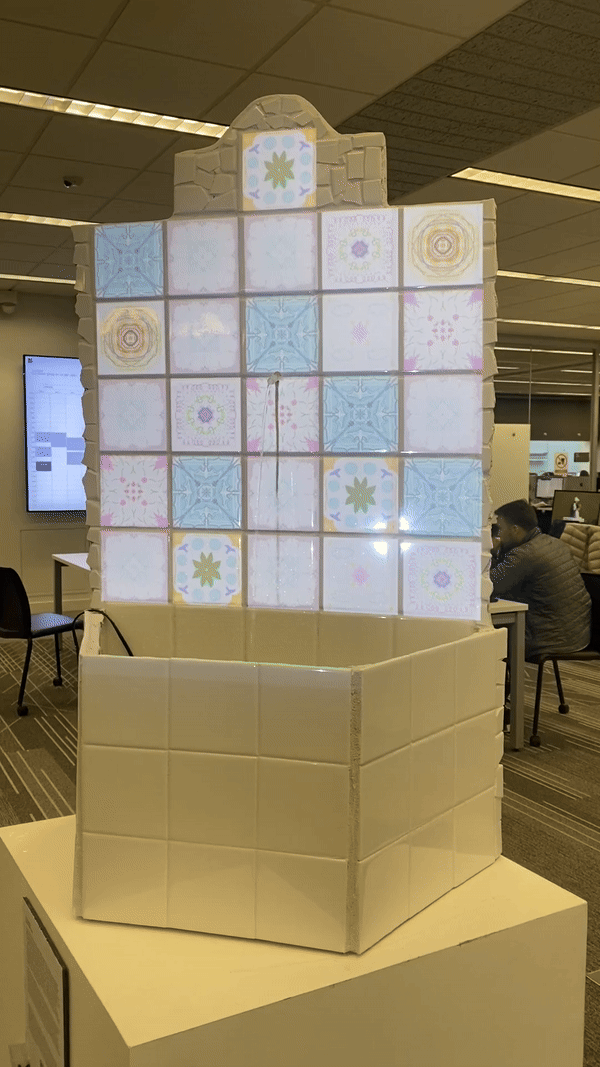
Overview
This is a mixed-media project combining a physical fountain, a projection mapping of digital designs, and audio from student interviews. The piece aimed to shed light on the stigma mental health carries in Latinx culture as well as provide a sense of solidarity with other Latinx students at the University of Chicago.
Project Details
My Role
Researcher, architect, projection mapper
Timeline
3 months
Deliverables
Functioning fountain, digital designs, audio of student stories
Background
This project was based on Talavera art, a pottery style consisting of unique floral, natural, and geometric designs. Because Talavera is emblematic of Mexican culture, and I centered my project on this representation of my Latinx heritage.
I decided on making a fountain because the flow of water symbolizes the potential for change within a person and within the mindset of Latinx culture.

Process
Part 1: Interviews
10 in-depth-interviews
Participants had to be:
-
University of Chicago students
-
Latinx
-
Previously or currently seeking mental health help
Participants were asked:
-
General background
-
Experience dealing with mental health in the Latinx community
-
Advice for other students going through similar situations
After the questions, participants were asked to design tiles that depicted their emotions regarding their experience. They were also asked to explain their stylistic choices.










Part 2: Construction
Fun fact, I built this in my living room!




Part 3: Projection Mapping
I used AfterEffects to create a video portraying the tiles, each students' description of their tile, and their advice for other students. The video was carefully crafted to fit match up with the tiles on the physical fountain and create the illusion that they were painted on. The video was aroun 15 minutes long, but this is what part of it looked like.
Research Insights
Aside from the artwork, I uncovered interesting insights regarding the way mental health is approached in Latinx communities:
-
A combination of systemic and cultural barriers lead to the dismissal and invalidation of emotions.
-
Lack of awareness increases the probability that caregivers will have a negative view of mental health.
-
Students with siblings had an easier time receiving help because their parents had been previous experience.
-
Caregivers who had low education on mental health care were more likely to be against their children using it.
-
A lack of accessibility to mental health care further pushed caregivers away from seeking help.
-
-
Students often wished they had been more outspoken about their struggles.
-
Speaking to someone about their issues allowed students feel validation and comfort.
-
Reflection
-
I truly enjoyed working on this project because it combined my passion for mental health awareness and ethnographic research.
-
I found myself using many of the skills I have gained from UX during the interviews.
-
I would like to expand on this project by interviewing people outside of the UChicago demographic. It would also be pretty cool to make an even bigger structure.
